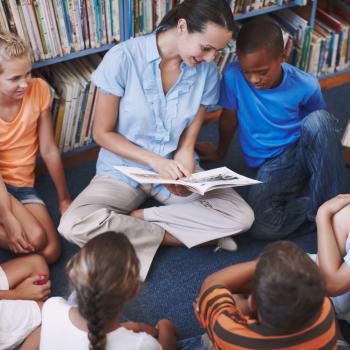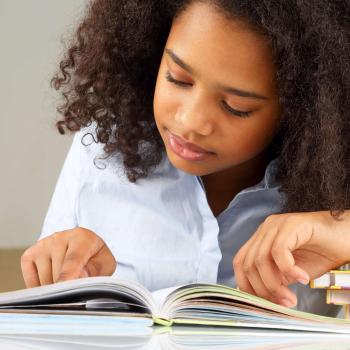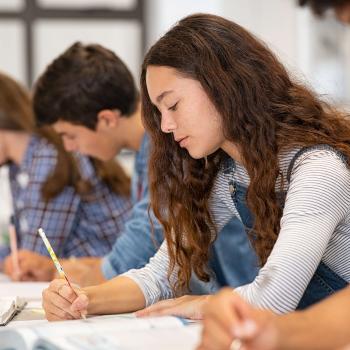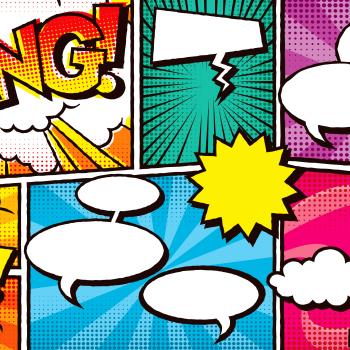High school students are taught how to use resumes and cover letters to highlight their skills and make them stand out, whether applying to college or for a job.

Resumes and Cover Letters for High School Students

Grades
|
Using Story Innovation to Teach Fluency, Vocabulary, and Structure
3 - 6
Lesson Plan
| Recurring Lesson
An instructional strategy called story innovation teaches students fluency, comprehension, vocabulary, and story structure. This unique strategy can be adapted for many purposes.

Grades
|
Digital Word Detectives: Building Vocabulary With e-Book Readers
2 - 6
Lesson Plan
| Minilesson
Students in grades 2-6 use digital dictionaries and other e-book tools to learn new vocabulary as they read e-books on digital reading devices.

Grades
|
Seeking Social Justice Through Satire: Jonathan Swift's "A Modest Proposal"
10 - 12
Lesson Plan
| Unit
This lesson assists advanced students in grades 10–12 in comprehending Jonathan Swift's "A Modest Proposal" and developing a presentation to satirize a contemporary social issue.

Grades
|
Loaded Words: Vocabulary That Packs a Punch in Persuasive Writing
4 - 8
Lesson Plan
| Minilesson
In this minilesson, students practice identifying and purposefully using vocabulary in persuasive writing that is intended to have an emotional impact on the reader.

Grades
|
Creating a Feast for the Senses With Mentor Texts
3 - 6
Lesson Plan
| Minilesson
This lesson teaches intermediate students to "use the experts" to learn how to revise to create sharp, sensory-rich experiences for their readers.

Grades
|
Show-Me Sentences
6 - 12
Lesson Plan
| Recurring Lesson
This lesson teaches students how to revise dull "telling" sentences into vivid, descriptive "showing" sentences.

Grades
|
A Portrait of Our World: Making Connections and Developing Comprehension
6 - 8
Lesson Plan
| Unit
Students engage in carousel walks, character analyses, global explorations, and genre studies while using valuable language arts strategies to build higher-level comprehension skills.

Grades
|
Playlist for Holden: Character Analysis With Music and Lyrics
7 - 12
Lesson Plan
| Minilesson
Students compile a playlist of 10 songs representing a literary character and explain their choices based on the book's dialogue, plot, conflict, and resolution.

Grades
|
Engineering the Perfect Poem by Using the Vocabulary of STEM
7 - 10
Lesson Plan
| Standard Lesson
Students research engineering careers and create poetry to understand the vocabulary of STEM (science, technology, engineering, and mathematics).

Grades
|
What's Under the Slide? Making Inferences Using Microscopes
3 - 5
Lesson Plan
| Minilesson
Students hone their critical thinking skills by learning how to make inferences from textual clues.

Grades
|
What is Poetry? Contrasting Poetry and Prose
6 - 8
Lesson Plan
| Standard Lesson
Students often find poetry frustrating and meaningless. By helping students think critically about the differences between poetry and prose, this introduction sets the stage for different strategies for comprehending poetic texts.

Grades
|
Making Memories: An End-of-Year Digital Scrapbook
6 - 8
Lesson Plan
| Standard Lesson
Students reflect on their school year, creating a digital scrapbook consisting of images and text to present to their school community.

Grades
|
A Prereading Strategy: Using the Vocabulary, Language, Prediction (VLP) Approach
6 - 8
Lesson Plan
| Standard Lesson
Students learn content area vocabulary and increase reading comprehension using the Vocabulary, Language, Prediction (VLP) approach.

Grades
|
Reading Through Different Lenses: Making Text Connections Across the Curriculum
6 - 8
Lesson Plan
Students learn to comprehend the linguistic text styles of different content areas and use the interactive ReadWriteThink Notetaker tool as the teacher models the exercise.

Grades
|
The Magic of Three: Techniques for the Writer's Craft
4 - 8
Lesson Plan
Students learn to use tricolons—a writer's technique of putting words and phrases into groups of threes—to add rhythm and power to their writing.

Grades
|
3-2-1 Vocabulary: Learning Filmmaking Vocabulary by Making Films
6 - 8
Lesson Plan
| Unit
Bring the vocabulary of film to life through the processes of filmmaking. Students learn terminology and techniques simultaneously as they plan, film, and edit a short video.

Grades
|
Engaging With Cause-and-Effect Relationships Through Creating Comic Strips
2 - 4
Lesson Plan
Students demonstrate their knowledge of cause-and-effect relationships by creating original comic strips and sharing their completed work in an oral presentation format.

Grades
|
Creating an Online Community Through Electronic Portfolios
9 - 12
Lesson Plan
| Recurring Lesson
Students publish their work in an electronic portfolio, which enables them to respond to each other's content online.

Grades
|
e-Book Reading and Response: Innovative Ways to Engage with Texts
5 - 12
Lesson Plan
| Standard Lesson
Students in grades 5 through 12 read and respond to electronic books by using e-book tools and features, including digital note-taking capabilities.